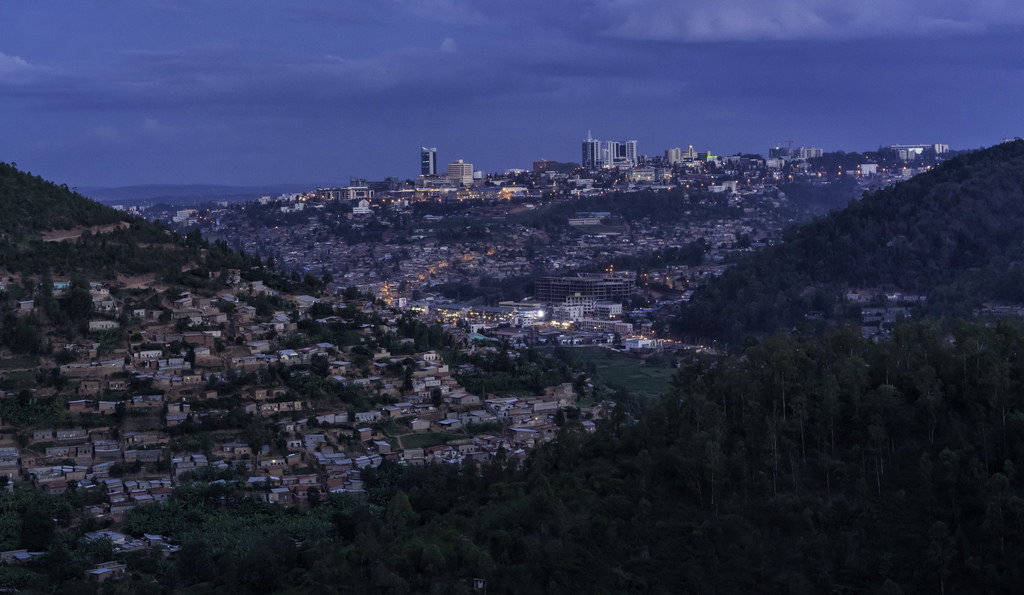The Africa Policy Journal recently chatted with Francis Gatare, the Chief Executive Officer of the Rwanda Development Board and a Cabinet Member of the Government of Rwanda. Mr. Gatare was visiting Harvard Univeristy along with President Paul Kagame. He discussed a range of issues including: Rwanda’s emergence from the 1994 genocide and its economic growth trajectory over the years, to regional integration and pan-Africanism, and finally to the future of social entrepreneurship on the continent. Below are excerpts from the interview.
Q: Rwanda is lauded for its significant strides towards economic growth and development.Can you provide us with the way in which the nation of Rwanda has achieved this given the context of the nation’s 1994 genocide?
Gatare: It is important to highlight that Rwanda has a context – the 1994 genocide, which saw the nation lose the essential fabric of a functioning state. The nation lost over 1 million lives and Rwanda was in essence a failed state. It is against this backdrop from which modern-day Rwanda finally emerged. To emerge from such a traumatic context, the nation focused extensively on three things: firstly, strong leadership; secondly, a strong focus on national unity and a unified national identity so as to heal the wounds of the country; and thirdly, economic engagement on productive activities, given that Rwanda is not significantly endowed with natural resources.
Q: On the point that Rwanda is not significantly endowed with natural resources, what implementable strategies has Rwanda put into effect as part of its economic growth agenda?
Gatare: Rwanda is a landlocked country and what that means is that the destiny of Rwandans is tied with its immediate neighbors, so there is a strong emphasis on effective regional integration, because we noticed that Rwanda cannot make it on its own.
Q: How has Rwanda achieved what you say is “effective regional integration” to realize its developmental mandate?
Gatare: Rwanda is on the direction of achieving effective integration by having removed visa requirements to enter the country. Furthermore, there has been removal of fiscal and non-fiscal barriers and harmonization of regulations along with its neighbors. In addition, as part of effectively integrating regionally, Rwanda contributes its troops to conflict-ridden countries across Africa, so as to contribute to peace and security. This is important because as Africans, we should realize that African problems should be met with African solutions.
Q: Given all the extensive strategies Rwanda has put into place relating to effective regional integration, why has there been a significant drop in Rwanda’s “Trading Across Borders” ranking in the World Bank’s Doing Business Index from 77 in 2015 to 156 in 2016?
Gatare: That is a very important question because at the Rwanda Development Board we place great emphasis on Rwanda’s position in those ranks. Regional integration has meant a reduction in the amount of time for cargo to be transported across borders and this has also meant that the amount of paper work has significantly reduced. However, in order to yield such results – in the reduction of paper work and time spent to get things done across borders – it has meant we needed to implement new policies, which come with the trade-offs of increased initial costs and the difficulties that come with attempting to harmonize various regulations across different countries. So, the initial difficulties faced during the stages of implementing new policies and the harmonization process to achieve integration, resulted in Rwanda’s indicator for “Trading Across Borders” in the World Bank’s Index dropping; but we have learnt and the policies are now in place and the indicator will be brought back.
Q: If we can change gears a little bit, what has been the reaction of foreign investors to Rwanda’s recent referendum to amend the Constitution to enable President Kagame to run a third term, given that foreign investors value the rule of law and democratic systems in the host nations they invest into?
Gatare: Firstly, the Rwandan population wanted to see the President stay on longer as president, and they had their voices heard through the referendum. Secondly, the business environment values consistency and new governments always bring fears of volatility in policies that concern the business landscape in the minds of foreign investors. So, the business community has been overwhelmingly supportive.
Q: As the CEO of the Rwanda Development Board, what are your thoughts on having a pan-African Development Board under the auspices of the African Union?
Gatare: A pan-African economic growth and development agenda is important; but a pan-African Development Board is not feasible. We currently have regional bodies (COMESA,ECOWAS, SADC, EAC and so on), which are more practical in achieving collective development. Africa has 54 countries and each of those countries have unique circumstances and unique solutions. And so a pan- African Development Board would not serve the whole continent.
Q: “Social entrepreneurship” seems to be the buzzing term these days in various “development circles”, what are your thoughts on social entrepreneurship as one of the methods for Africa’s economic growth and development mission?
Gatare: Entrepreneurship is not novel and so it is important to note that whilst social entrepreneurship seems to be buzzing these days, entrepreneurship is a mindset and therefore enables entrepreneurs to have innovative ways to look at the world differently. It is gladdening to see African entrepreneurs redefine how to do business in Africa for Africans.
Q: And finally, what is your advice to Africans in the Diaspora (or those with an interest in working in Africa) looking to go back to Africa and be a part of the African economic growth story?
Gatare: Firstly, Africa needs knowledge, skill, and experience. Secondly, the Diaspora sometimes get too concerned with the challenges; but they should first and foremost see the opportunities on the continent and the emerging potential of Africa. And finally, Africa is the source of global economic growth and people should surely be looking in its direction.
